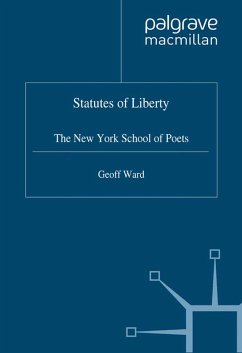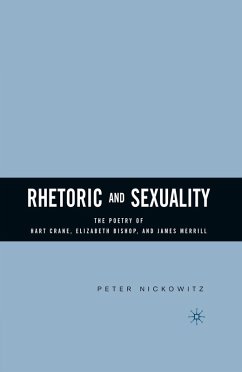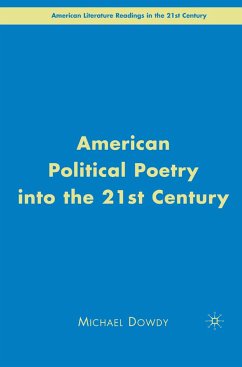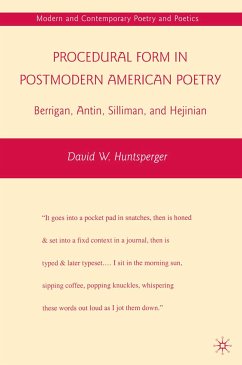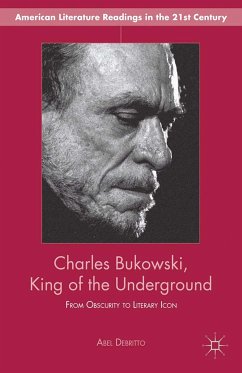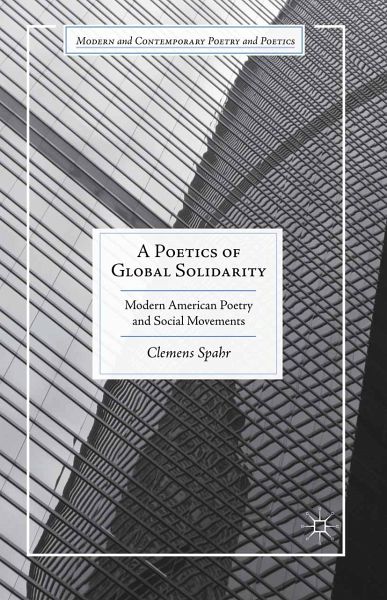
A Poetics of Global Solidarity (eBook, PDF)
Modern American Poetry and Social Movements
Versandkostenfrei!
Sofort per Download lieferbar
40,95 €
inkl. MwSt.
Weitere Ausgaben:

PAYBACK Punkte
20 °P sammeln!
Tackling topics such as globalization and political activism, this book traces engaged poetics in 20th century American poetry. Spahr provides a comprehensive view of activist poetry, starting with the Great Depression and the Harlem Renaissance and moving to the Beats and contemporary writers such as Amiri Baraka and Mark Nowak.
Dieser Download kann aus rechtlichen Gründen nur mit Rechnungsadresse in A, B, BG, CY, CZ, D, DK, EW, E, FIN, F, GR, HR, H, IRL, I, LT, L, LR, M, NL, PL, P, R, S, SLO, SK ausgeliefert werden.





